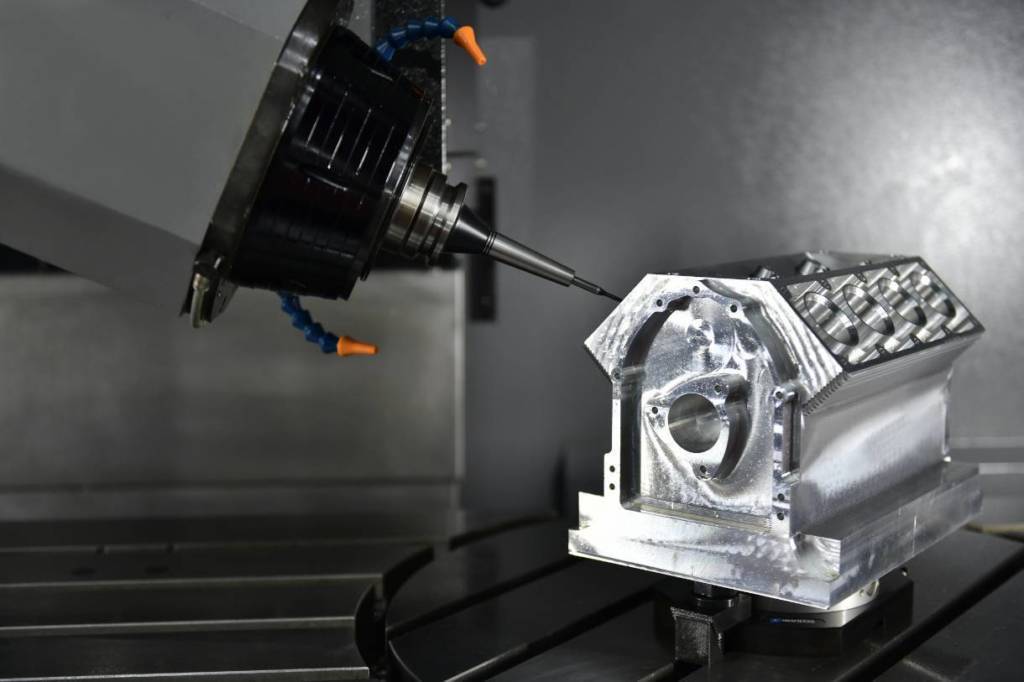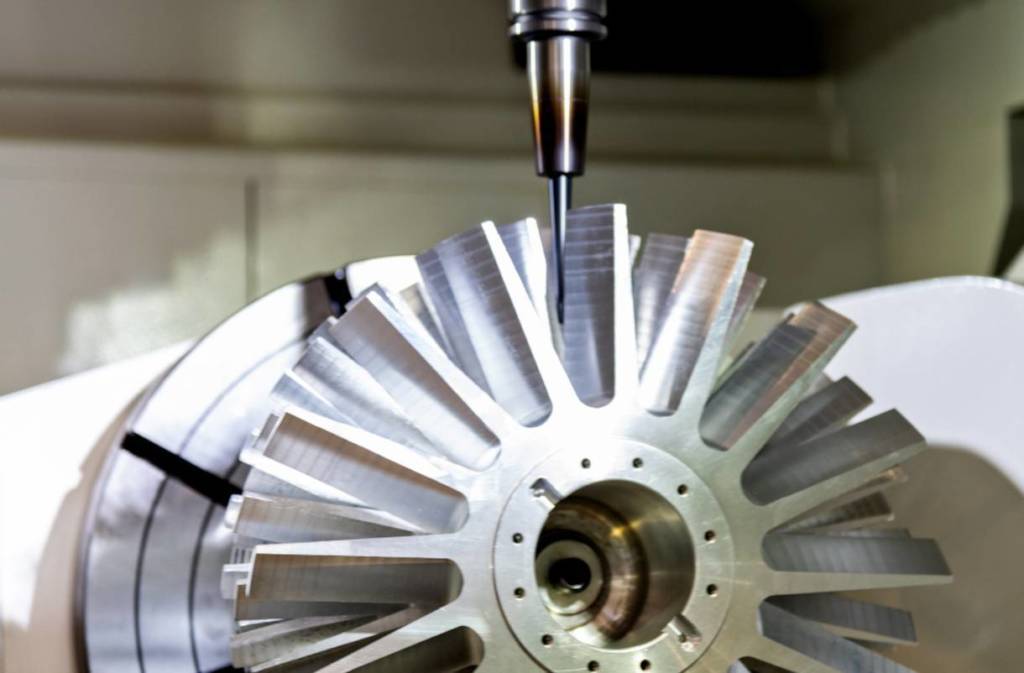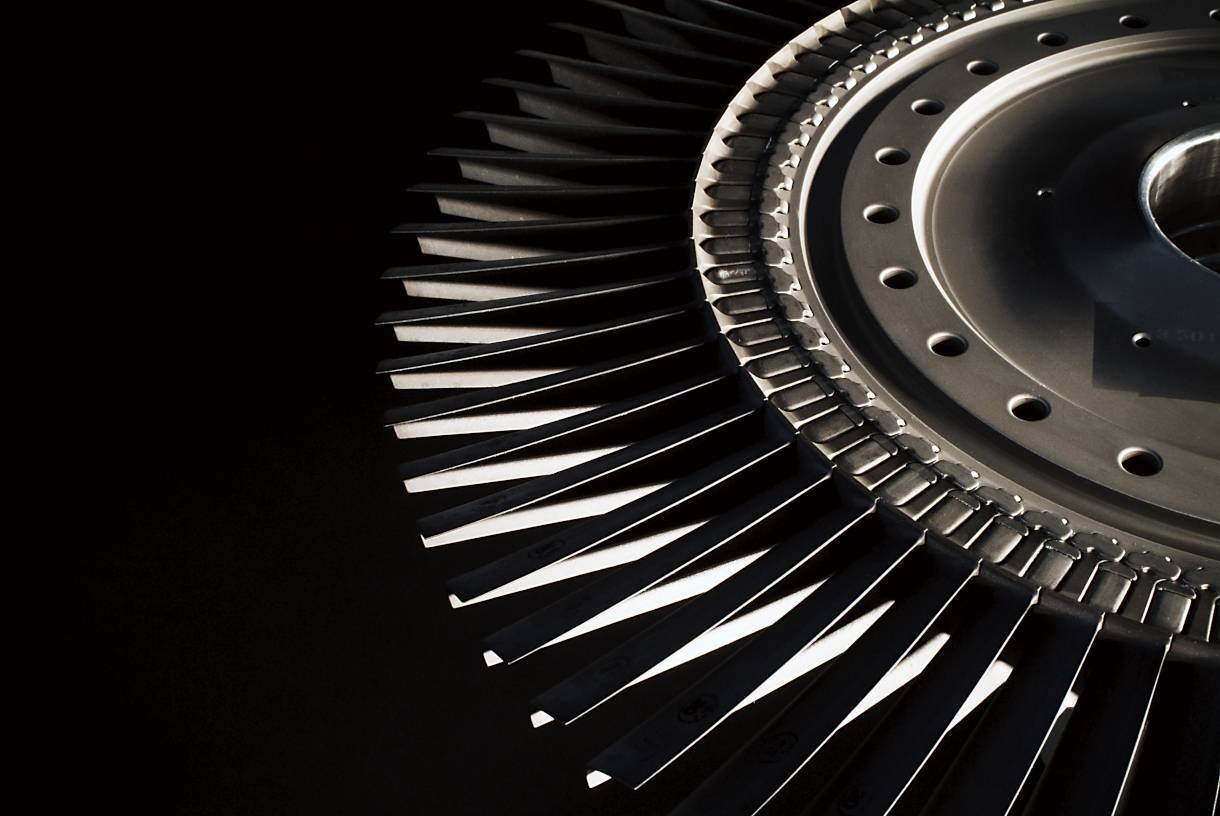How Precision Engineering Supports Precision Manufacturers

In today’s markets, producing components and parts for the aerospace, medical, automotive, and defense industries often requires manufacturers to reach levels of precision and quality which were once unachievable.
This evolution speaks to not only the quality of manufacturing, but the skill and talent of the engineer behind the designs. As the need for higher accuracy and tighter tolerances grows more acute, so is the need for equipment designed to achieve the highest levels of precision engineering.
CNC machines are purpose-built to achieve tight tolerances to execute precision manufacturing applications. However, success with the best, most advanced machines still require the expertise and steady hand of a qualified engineer.
Success requires engineers to accurately, precisely, and efficiently design the ideal processes, machine and part coordination, and well-programmed production and operations to cut and create the highest quality parts at the fastest cycles.
Let’s take a deeper look at the relationship between the field of precision engineering and the needs of precision manufacturers.
What is Precision Engineering?
Precision engineering is the backbone of CNC machining. Quality machined parts require a finely tuned foundation of inputs and processes.

- Exactness of the parts or machine
- Repeatability of the precision manufacturing process
- Consistency of finished products to achieve high resolution
Today’s advanced manufacturing industry demands accurate resolution and exact dimensions. Precision engineering is a subfield of electrical engineering, software engineering, electronics engineering, mechanical engineering, and optical engineering. Downstream, precision manufacturers rely on precision-designed machines for their highest quality parts.
Why is Precision Engineering Critical for Manufacturers?
Precision engineering is the backbone of precision machining with CNC equipment, and quality machined parts require a finely tuned foundation of inputs and processes.
When designing a precision manufacturing solution, precision engineers touch every step in the CNC production workflow:
It creates highly precise movements.
Producing precision parts and components requires accurate movement of every aspect of the production setup. Precision engineering ensures that all CNC machine parts are accurately designed, calibrated, and controlled. This includes minimizing vibration, material and tool handling, programming, and more.
It reduces inefficient energy dispersion.
Energy dispersion can slow down production quality and process. Error-free engineering minimizes the dispersion that occurs during a part or product function in order to achieve the best output.
It eliminates component fitting and promotes assembly–especially automatic assembly.
Automated assembly offers superior performance and results when compared to component fitting through manual assembly. This requires precisely designed machining to increase the application’s productivity and efficiency.

It reduces ongoing operational costs.
Reducing costs is key to achieving production efficiency. Precision engineering eliminates unnecessary costs and waste, leading to a long-term reduction in operational and production costs. You will save time and money when components are engineered for greater durability, decreased waste, and increased production efficiency.
It extends the machine’s life span by reducing wear.
Every machine or part has a specific load capacity. Precision engineering ensures that each point along the production path passes the correct input to the next unit. Thus, each machine part receives the optimized load it can bear. The absence of strain and overload extends the life span of all the equipment involved in the machining process.
It increases safety for operators.
CNC machining solutions that have higher resolution and exactness of design and function keep conditions under check. Employees operating the machinery are safer from hazards resulting from unexpected machine failures or unstable machine parts.
It improves interchangeability of components from multiple suppliers.
Quality is universal, but there may be more than one technology or system that helps manufacturers achieve the quality they want for the finished product. That’s where precision engineering levels the playing field by offering the ability to design custom solutions that can interchange machine parts from a variety of different suppliers and OEMs.
It improves quality and reduces scrap, rework, and conventional inspection.
Designing and precision engineering parts and machines to strict dimensions and specifications reduces the amount of scrap produced by the machining process, in addition to minimizing the need for reworking jobs. Digital inspection technologies can also replace conventional inspection methods to make quality assurance more efficient and reliable.
It reduces human error.
Precision engineering for CNC machining solutions often incorporates automation on top of digital controllers and monitoring. These automated processes and digital controls reduce the risk of human error during critical steps of the machining workflow that threatens the quality of the finished parts.
It increases output and cycle time.
Accurately engineering the design of equipment and workflows makes the production more seamless. An increase in output and reduced cycle time support the ROI for precision manufacturers seeking to produce more parts faster without sacrificing quality or safety.
What Does a Precision Engineer Do in CNC Machining?
CNC machining requires accuracy and quality at every step. Precision engineering incorporates multiple disciplines to achieve a comprehensive solution that incorporates multiple CNC technologies and tools. Precision engineers use their expertise to successfully overlap these multiple components and integrate the final solution into operating environments.

5 Engineering Disciplines Needed for Precision Engineering
Mechanical
Physical components and parts are produced under set dimensions and standards. The starting point for this involves the accurate designing of machines before they are used for production. This involves precise measurements, movement, and positioning.
Electrical
In CNC machining, correct electronic and electrical units are needed to support the machinery. Precise electrical designs focus on the right amount of current and avoiding hazards. Every part gets the exact resistor, capacitor, diode, transistor, fuse, etc. needed to safely and correctly use electrical power.
Computer Software (Programming)
Computer software drives the CNC machining process. Precision engineers work out accurate software that controls the automotive process for quality delivery. It is the programming and intuitive user interface that controls the machine’s activity. The accuracy of the code directly controls the efficiency of the machine.
Process
The CNC machining process involves the communication of mechanical, electrical, and computing engineering solutions. Precision engineering is needed to keep the process smooth and coordinated with cause-and-effect management and automation.
Quality Control
Precision engineers focus on meeting the high demands for quality at all times, designing systems and processes that not only produce parts, but also check and continuously improve quality as necessary. Achieving and maintaining quality relies on precision engineers working closely with the other project managers.
What is Precision Manufacturing?
Precision manufacturing converts the precision-engineered designs into a solution that produces highly-accurate parts. It executes all the work and equipment modification that is mapped out during the precision engineering process.
Ultimately, the foundation for CNC manufacturers to machine components with high precision starts with precise engineering design. The manufacturing process focuses on creating the exact resolution contained in the design.
What Does Precision Manufacturing Offer?
Precision manufacturers meet the ever-increasing demand for quality and dimension-specific parts requested by their customers by focusing on three core capabilities: Accuracy, precision, and tolerance.
Accuracy
Parts must meet the exact specifications of the job–emphasis on “exact.” The manufactured parts will align with the expected properties and follow the precise designs created by the precision engineers involved with the project.
Precision
Precision is required for CNC machines to produce consistent results and repeatability. Irrespective of the number of units produced, there will be a repeated standard matching the precision-engineered design. Shop owners will be confident that the 50th part produced matches the first part exactly.
Tolerance
While total accuracy is ideal, in reality there is an acceptable level of variation engineered in precision parts, often balancing the acceptable tolerances with the cost of achieving extreme precision. Precision engineers ensure the tolerable limits of the final product are not exceeded when there is variation.
Potential Opportunities For CNC Shops
The ability to offer parts machined to greater precision and accuracy creates a winning opportunity for CNC machining shops. Machines and services may return a substantial ROI when factoring in efficiency, cycle times, waste reduction, customer satisfaction, risk, and more.
Efficiency
Precision engineering improves workflows and your shop’s current operational efficiency. Efficiencies are created not just within the machining solution itself, but also for every system and process that integrates with the machines.
Versatility
Precision engineering makes CNC machines more versatile and capable of producing premium parts with intricate shapes from difficult-to-machine materials such as hard metals and exotic alloys. This kind of versatility creates expanded capabilities for CNC shops so they can accept and fulfill a larger variety of orders and requirements from their customers, increasing their revenue and growth.
Innovation
Many industries seek newer technologies to produce small, highly defined parts, such as invasive medical devices requiring high precision. Precision engineering and manufacturing applications in newer machine technologies enable unprecedented opportunities.
Precision Manufacturing and Precision Engineering Must Work in Harmony

Without the foundation of precision engineering, there is no way to achieve precision manufacturing at scale. A team of precision engineers must review goals, workflows, skills, primary production needs, and more to recommend or design the right solutions for CNC shops.
Working with the right precision engineering team is essential to success. At Methods, we pride ourselves on precision engineering the best CNC solutions for our customers to support any application and industry.
How Methods Delivers Precision for Customers
- Experienced Engineers: Our highly skilled CNC machining experts leverage their experience and background in precision application engineering to design your ideal solution from the ground up.
- Thoughtful Application Design: We form a deep understanding of the parts your shop needs to machine, as well as planning how the solution will integrate with your shop’s existing systems and processes–especially when incorporating automation.
- Testing and Experimentation: We validate your precision solution through repeated, exhaustive, and highly controlled tests. For projects that involve extreme or highly confidential requirements, we leverage our exclusive Precision Lab facility to experiment and test your solution under secure and highly-controlled conditions.
If you’d like your shop to achieve greater precision and expanded capabilities that allow you to say “yes” to more jobs, contact Methods to discuss your project.